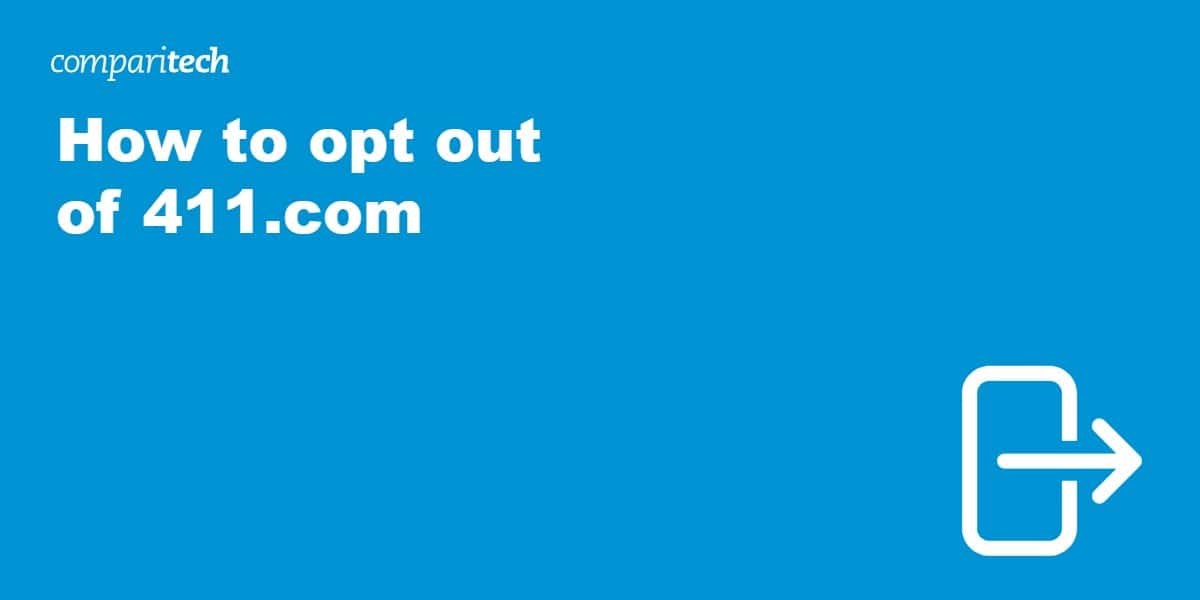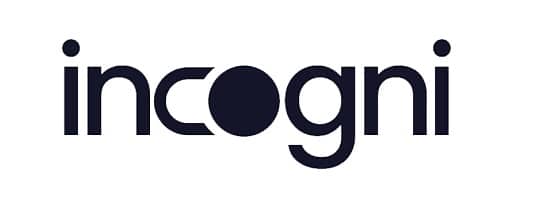411.com sells personal information like names, previous names, aliases, birthdate, addresses, employment history, and other sensitive details. The sale of this data poses significant risks, including phishing attempts, fraud, identity theft, and even potential implications for your future opportunities.
Current regulations allow businesses like 411 to compile and sell people’s personally identifiable information. Thankfully, however, you have the right to request the removal of your personal information from these people finder sites.
In this privacy guide, we explain the hidden dangers of data brokers like 411.com. We’ll tell you exactly how you can opt out of 411, and we will recommend data removal services that can help you banish your data from as many data brokers as possible.
What is 411.com?
411.com is a people-finder service that offers personal information for sale online. It harvests user data from thousands of different public sources and then compiles and offers that data for sale. This causes significant privacy concerns for the millions of people currently in its database.
Data brokers like 411 automatically aggregate your personal details from public sources, and unfortunately, doing so is completely legal. This means that anybody can approach 411.com to figure out your address, phone number, and other personal details.
Unfortunately, there is currently no oversight over who can purchase your data. This means that literally anybody in the world, including cyber criminals with bad intentions, can use a data broker site to harvest information about you and use it to engage in ID theft or fraud.
The only silver lining is that you can ask for your data to be removed from data brokers like 411 by leveraging laws like CCPA and GDPR. However, we recommend you read all of this guide because there are some important caveats to understand about removing your data from data brokers.
How do companies like 411.com harvest my personal data?
Companies like 411.com specialize in aggregating people’s personal data to sell it. They amass it from thousands of different public sources. This includes scraping the web to harvest people’s information from social media profiles without their knowledge or consent. Your data can be pulled from public records, such as court records and voter databases.
People finder websites also form partnerships with online services and apps. These services often have lax data policies that allow them to share their data with people finder sites like 411.
Data brokers can also purchase information from third parties. When you search the web, download apps, buy items online, sign up for online services, fill out online forms, and engage in countless other ordinary activities, your data eventually makes its way into the hands of data brokers.
Below, we have provided the most functional solution for removing your data from all data brokers, which is to use a trustworthy data removal service that does it on your behalf. Later in this guide, we will also explain how to do it manually.
Our favorite data removal service for 411.com: Incogni
The easiest way to remove your data from multiple data brokers is to use a data removal service. If you want a reliable company to handle your take-down requests on your behalf, we highly recommend Incogni. It is an efficient yet budget-friendly service designed to scrub your data from 411.com and more than 180 other different data broker websites.
This service was developed by Surfshark, a renowned VPN provider with a proven track record of prioritizing robust data privacy for its users. The company has excellent privacy policies, engages in regular audits, and has a proven track record for securing user data.
Unlike many data removal services, Incogni needs only a few of your personal details to get started. This makes it easy for beginners to set up and makes it a better choice for people who value data privacy. In contrast, providers like Delete Me, require a massive list of personal data and even copies of official documents to initiate your removal requests.
By operating on the assumption that your records are present on every significant people-finder website, Incogni works to remove you from all those data brokers simultaneously, without feeding them any specific details in the process of performing take-down requests.
Subscribing to Incogni includes access to a user-friendly dashboard where you can monitor the progress of your removal requests. If you have any inquiries or require assistance removing data from a specific data aggregator, you can easily reach out to Incogni via email or the ticket submission form on its website.
A subscription to Incogni starts at just $6.49 per month per person. To get this 50% discount, you must pay in a single installment of $77.88 annually. If paying the annual rate is a bit too pricey for you, there is the option to pay each month for $12.99.
Anybody can purchase a subscription for Incogni in the US, Canada, the UK, and most of Europe. This makes it more widely available than most of its competitors.
How to remove your data from 411 with Incogni
With Incogni, you can remove your information from 411.com and over 180 other data brokers. In case you are wondering how the process works, we have provided a step-by-step guide below:
- Head over to Incogni and get a subscription. You can pick between a monthly subscription for US$12.99 or get a 50% discount by subscribing for a year.
- Give Incogni permission to act on your behalf. This will allow the service to manage your data removal from over 180 different data brokers.
- Track your progress. As soon as you have provided the details necessary to let Incogni remove your data, you can monitor your progress in your personal dashboard. Requests will begin immediately, and within a month the majority of data brokers should have removed your data. If any haven’t, Incogni will continue to act on your behalf until the company has responded and acquiesced.
The service continually expands its coverage to guarantee the removal of your data from all the most invasive data aggregators.
If you have any questions about setting up or using the service, you can use the FAQs and other resources on its website to find out anything you need. You can also ask questions via email, or using the contact form on its website.
How to remove your data from 411.com manually
If paying for one of the recommended services above doesn’t suit you, you can choose to remove your data yourself.
How to remove your data from 411 yourself:
- Visit the 411.com website by grading to this URL: https://www.411.com/
- Search for your profile and copy the URL for your profile.
- Scroll to the bottom of the page and click on Do Not Sell My Information
- You will now be forwarded to the opt-out page on whitepages.com. This is the same opt-out system for both Whitepages and 411.
- Input the URL for your 411 profile in the box provided (alternatively you can request for your profile to be removed by sending an email to privacyrequest@whitepages.com
- Select your reason for wanting to be removed.
- You will now be asked to provide your phone number in order to verify your removal request
- Answer the robocall from Whitepages to confirm that the number is yours.
Thats it! You will now be removed from both Whitepages and 411.
Remember that removing your data from 411.com (or any other data broker) will not remove your data from other people finder websites. If you want to successfully remove yourself from multiple sites, you will need to approach each data broker individually or use a reliable data removal service like Incogni.
How can I remove my personal data from all data brokers permanently?
If you want to remove your data from all data brokers, you will need to contact each of those services one at a time. There is currently no way for consumers to ask to be removed for all data brokers. This makes it extremely difficult for individuals to manage their digital footprint themselves.
According to data removal services like Incogni, it would take around 300 hours to remove yourself from all data brokers. This is a huge amount of work for anybody to undertake, and illustrates the need for governments to pass better regulations that empower people to genuinely manage their data privacy,
Data brokers are known to suppress people’s data rather than deleting it. Due to these unscrupulous practices, it is likely that your data will be republished at a later date. This creates an ongoing problem and means that you must keep asking for your data to be removed every few months.
With this in mind, the best option to gain watertight online privacy is to use a service like Incogni. These data removal services will regularly ask your data to be removed from 411 and other people finder sites, ensuring that it stays off those websites and doesn’t re-appear for sale.
Why should I opt out of 411.com?
Having your data published by people finder sites has no tangible benefits, but the potential drawbacks are extremely concerning. You could receive an old bill, or some other obligations you knew nothing about Worse yet; you could fall victim to a very serious crime.
Data broker websites pose an ongoing threat to your privacy, leaving you vulnerable to a wide variety of malicious acts, including cyber-attacks, phishing, smishing, identity theft, fraud, stalking, harassment, and other scams.
Current regulations do not require data brokers to question the reason why people want to purchase your data. This makes it easy for individuals with malicious intent to track down targets or collect personal information that can be misused.
People finder sites enable cyberstalking and cyberbullying. They create serious ramifications for people attempting to escape abusive relationships.
To avoid these repercussions, we encourage you to do everything in your power to reduce your digital footprint. Removing your data from data brokers is a great start, but we also recommend using private search engines, VPNs, and other useful tools such as privacy-enhancing extensions.
Here is a list of data you can expect to find on data broker websites:
- First and last names, along with any previous aliases.
- Current and former addresses.
- Email addresses.
- Current and past phone numbers.
- Photographs.
- Age, date of birth, and potentially a copy of your birth certificate.
- Profiles from social media and dating platforms, including usernames.
- Educational and employment history.
- Vehicle details and previous speeding offenses.
- Licenses for hunting, weapons, or any professional licenses.
- Records related to marriages and divorces.
- Information about bankruptcy, including related records.
- Criminal records, including details about speeding tickets, etc.
- Voter registration information.
- Information about your neighbors, relatives, and cohabitants.
- Purchase history records.
- Amazon wishlist information
- Details about evictions and foreclosures.
- Bankruptcies, liens, and other legal judgments.
- Assets and properties
See also:
411.com opt out FAQs
Can 411.com re-add my information after I’ve opted out?
People finder websites harvest user data from public sources. This method of acquiring data provides an excuse for them to re-publish your data after you have asked for it to be removed. The unfortunate reality is that data brokers can easily claim to have re-acquired your data since your takedown request.
In order to more effectively exploit this loophole, some data brokers do not delete your data. Instead, they keep it on ice for a few months and then re-add your data to their database to start profiting from it again.
These unethical data practices mean that consumers have no option but to keep requesting for their data to be removed. Asking once isn’t sufficient, which creates a lot of work for individuals – and makes it almost impossible for consumers to adequately manage their digital footprint.
As a result, people pay for data removal services like Incogni. These services keep checking data brokers regularly to ensure data hasn’t been re-listed.
Are people search sites legal?
Yes, At the moment there is nothing stopping data brokers from selling you data. As long as the data they acquire is public, then they have done nothing wrong. This is why they gather data from public registries, by scraping the web, or by entering into partnerships with services you have permitted to share your data.
What is perhaps most unbelievable is that data brokers have little oversight, and are permitted to sell your data without ever questioning the motives of the purchaser.
For now, these practices remain legal and the onus remains on individuals to request data brokers remove their data.
Why does my 411 profile include incorrect information?
Data brokers amass data automatically for their profiles, primarily driven by profit rather than accuracy. They invest minimal effort in verifying the information they gather, making it easy for errors to creep into your profile, including data from individuals who share your name.
Incorrect information can also find its way into your profile if you’ve ever provided false details on a form or made a spelling mistake on an official document. These actions can inadvertently lead to inaccuracies in your online data broker profiles.
The silver lining here is that flawed data can serve as a safeguard. The more errors present in your people finder profiles, the more challenging it becomes for data purchasers to distinguish between fact and fiction. This, in turn, benefits your privacy.
How can I improve my digital footprint?
Cleaning up your digital footprint is a great way to improve your privacy and ensure that you are protecting your data against unwanted use. However, it should be part of a larger privacy strategy that seeks to minimize your data across multiple fronts.
To help you out, we have provided tips for improving your privacy below:
- Use a reliable VPN: Safeguard your online activities and communication data by connecting to a trustworthy VPN. This helps prevent tracking by ISPs, local networks, and other entities.
- Use private search engines and browsers: Opt for private search engines and browsers like StartPage, DuckDuckGo, Brave, and MoreLogin to minimize data collection by companies like Microsoft and Google.
- Install anti-tracking browser extensions: You can significantly enhance your online privacy with anti-tracking browser extensions such as Privacy Badger, NoScript, and uBlock Origin, which block third-party scripts and trackers.
- Use disposable email addresses: We advise that you protect your real information by using disposable email addresses and temporary phone numbers when signing up for new services.
- Delete unused accounts: Regularly monitor your online presence and eliminate any accounts you no longer use, reducing your digital footprint.
- Review app permissions: Be extremely cautious when selecting and installing apps, opting for those you genuinely require, and always check app permissions thoroughly before agreeing to install any app.
- Avoid sharing data publicly: Steer clear of sharing personally identifiable information in public posts or forums. This prevents easy access and potential misuse of your data.
- Use pseudonyms or false information: Whenever feasible to do so, use pseudonyms or provide fake details for non-essential accounts, applications, and services such as signing into public wifi. This helps to stem the flow of data to data brokers and other third parties.








